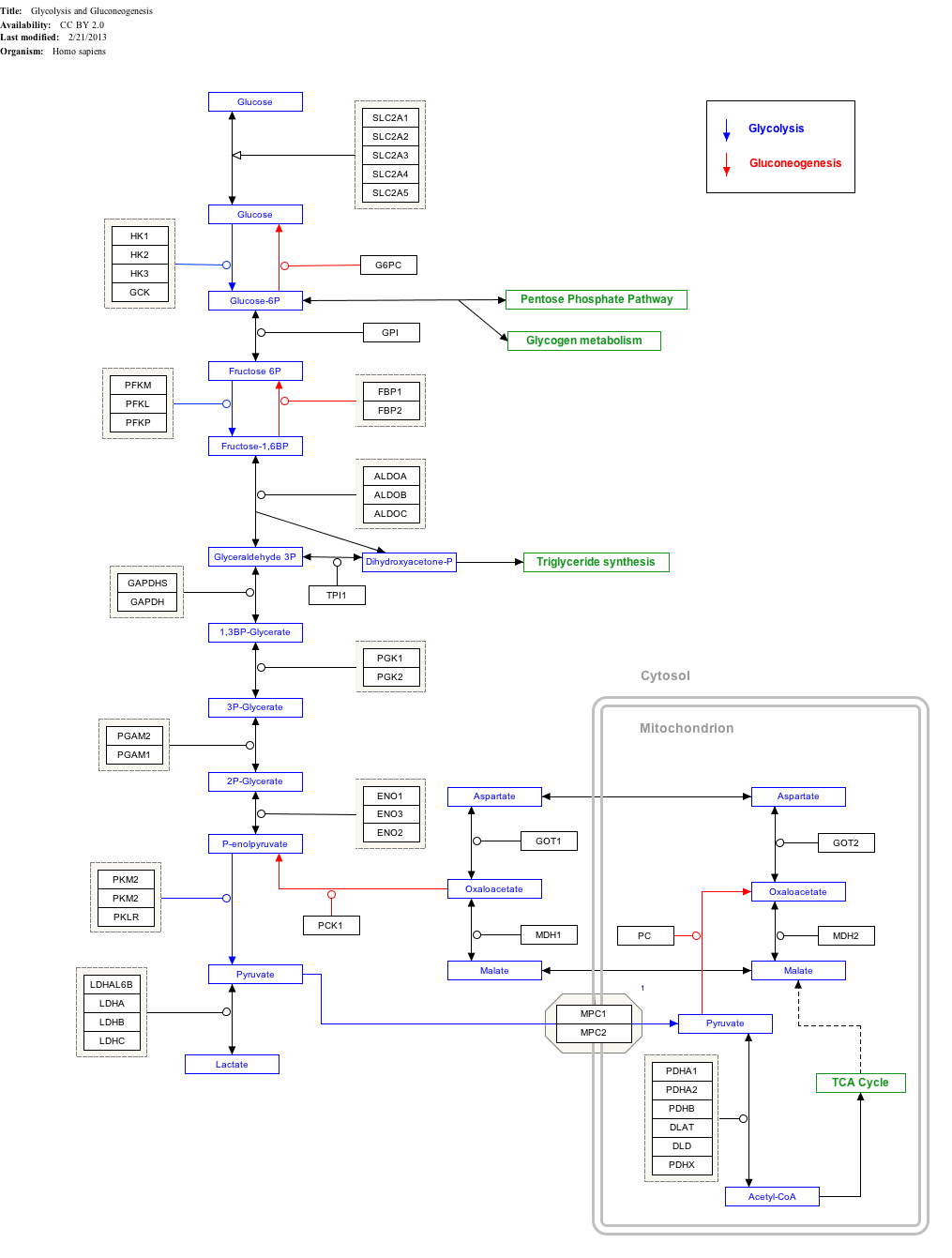Clinical significance
Mitochondrial pyruvate carrier deficiency (MPYCD) is an autosomal recessive disease due to mutations in the MPC1 gene on chromosome 6q27. It is an inborn error of carbohydrate metabolism that blocks aerobic glycolysis by preventing the transport of pyruvate from the cytosol into the mitochondrion for oxidative phosphorylation; however, anaerobic glycolysis is preserved. Common signs and symptoms include poor growth, normal lactate/pyruvate ratio (however both lactate and pyruvate are in higher than normal concentrations), hepatomegaly, lactic acidosis, hypoglycemia, neurological problems, and hypotonia. [6] A disease with comparable symptoms is also seen in autosomal recessive mutations of the MPC2 gene. [7]
This page is based on this
Wikipedia article Text is available under the
CC BY-SA 4.0 license; additional terms may apply.
Images, videos and audio are available under their respective licenses.




